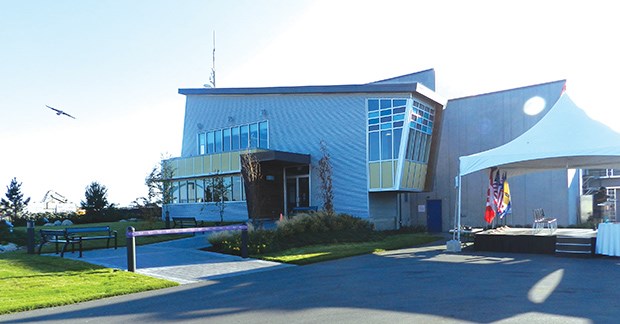Open letter to Metro Vancouver Legal and Legislative Services:
Re: Application for a Permit Renewal under the Greater Vancouver Regional District Air Quality Management Bylaw, 1082, 2008.
I am writing on behalf of the Kartner-Fedoruk community to express our opposition to Harvest Fraser Richmond Organics Ltd.’s application for authorization to discharge air contaminants from the Composting, Anaerobic Digester and Combined Heat and Power Facility at 7028 York Road, Richmond, BC, V6W 0B1. Our community is three kilometres directly north of the facility and we have been repeatedly exposed to noxious odours/emissions emanating from the company’s operations. This has not been an irregular occurrence but a daily one.
To highlight the seriousness of this problem, within the last two weeks – November 16-25, 2015 – odours have resulted from the plant on every day during that period and enveloped our community and persisted throughout the entire day. This is not a problem confined to cold weather conditions as throughout the spring and summer the odours were no less offensive and harmful.
There is no escaping from the foul contaminants/emissions and the odours increased substantially after proteins were introduced into the organic waste deposited at the facility.
The company’s application to obtain authorization to permit even higher concentrations of contaminants in the atmosphere is contrary to the well-being and health of our community and the general community in the south Fraser region.
The company has revealed by its operational record to date that it lacks the capacity, technology and means to address even the currently authorized emissions.
It is very apparent that the company over-promised and over-sold its technology to the regional municipalities who, out of concern for the rising cost of garbage disposal, seized on the company’s solution without full regard to the impact of concentrating the organic waste and proteins of the Lower Mainland municipalities in a single facility.
The issue is further exacerbated by the wind, fog and temperature inversion patterns in the area where the facility is located and the general impact of these patterns is that the contaminants/emissions from the facility are forced to ground level rather than dissipating at higher elevations. This has intensified the consequences of the plant’s emissions and the proposal to increase Sulphur Oxides (Sox) to 3,96 tonnes/year; Violatile Organic Compounds (VOCs) to 245.28 tonnes/year; Ammonia to 10.58 tonnes/year; Particulate Matter to 0.1 tonnes/year; and Hyrdogen Suphide to 7.25 tonnes/year will only lead to further deterioration of the air quality in the Lower Fraser region.
Furthermore, the very fact that the company is requesting authorization to increase emissions is an admission that its technology is inadequate and that its Odour Management Plan is a failure and that its only solution to rising complaints is to request authorization to exceed previously set limits. In addition, the company in its request admits that it expects daily discharge; there are 8760 hours in a calendar year and company is requesting authorization to discharge consistently and regularly throughout the year.
Mark Salopek
Richmond



